In today’s competitive Professional business landscape, continuous learning and professional development are essential for career growth and success. Whether you’re a seasoned executive or just starting your professional journey, pursuing the right courses can significantly enhance your skills, knowledge, and employability. This blog post will explore ten top courses that can propel your business career to new heights.
10. Online Courses and Certifications
Online learning platforms offer a wide range of courses and certifications, providing flexibility and accessibility for busy professionals. From business fundamentals to specialized technical skills, online courses can help you enhance your knowledge and skills at your own pace.
Key Benefits:
- Flexibility and Accessibility: Online courses offer flexibility and accessibility, allowing you to learn at your own pace and from anywhere with an internet connection.
- Wide Range of Courses: Online platforms offer a vast array of courses and certifications, covering a wide range of topics and skill levels.
- Affordability: Online courses can be more affordable than traditional classroom-based programs.
- Self-Paced Learning: Online learning allows you to learn at your own pace, accommodating your individual learning style and schedule.
Ideal for:
- Busy professionals
- Individuals seeking flexible learning options
- Those looking to enhance specific skills or knowledge in a particular area
Online Courses and Certifications: A Deeper Dive
Flexibility and Accessibility:
- Learn Anytime, Anywhere: Online platforms break down geographical barriers, allowing you to study from anywhere with an internet connection. This flexibility is ideal for busy professionals, parents, and individuals with unconventional schedules.
- Self-Paced Learning: Most online courses are self-paced, allowing you to learn at your own speed and revisit concepts as needed. This personalized approach caters to different learning styles and allows for flexibility in your schedule.
Wide Range of Courses and Certifications:
- Diverse Subject Matter: Online platforms offer an extensive library of courses across various domains, including:
- Business & Management: Project Management, Marketing, Finance, Leadership, Human Resources
- Technology: Programming (Python, Java, JavaScript), Data Science, Cybersecurity, Cloud Computing, AI/ML
- Creative Arts: Graphic Design, Photography, Video Editing, Music Production, Writing
- Personal Development: Personal Finance, Health & Wellness, Language Learning, Communication Skills
- Industry-Recognized Certifications: Many platforms offer courses aligned with industry-recognized certifications, such as:
- Project Management Professional (PMP)
- CompTIA A+, Network+, Security+
- AWS Certified Cloud Practitioner
- Google Digital Marketing & Data Analytics Certificates
- Microsoft Azure Fundamentals
Affordability and Value:
- Cost-Effective Options: Online courses often offer more affordable options compared to traditional classroom-based programs. Many platforms also offer free courses or trials, allowing you to explore different subjects without any financial commitment.
- High Return on Investment: By acquiring in-demand skills and certifications, you can increase your earning potential, advance your career, and gain a competitive edge in the job market.
Self-Paced Learning:
- Personalized Learning Experience: Self-paced learning allows you to tailor your learning experience to your individual needs and preferences. You can spend more time on challenging topics and move quickly through material you already understand.
- Flexibility and Convenience: This flexibility is particularly beneficial for individuals with busy schedules, allowing you to study at times that are convenient for you.
Interactive Learning Experiences:
- Engaging Content: Many online courses utilize interactive elements such as videos, quizzes, and simulations to make learning more engaging and effective.
- Community and Collaboration: Some platforms offer forums and discussion boards where learners can connect with peers, ask questions, and share insights.
Choosing the Right Platform:
- Research and Compare: Explore different platforms like Coursera, edX, Udemy, Skillshare, and LinkedIn Learning to compare course offerings, pricing, and features.
- Read Reviews: Check reviews from other learners to get insights into the quality of the courses and the effectiveness of the platform.
- Consider Your Learning Goals: Choose a platform and courses that align with your specific career goals and learning objectives.
Tips for Success:
- Set Realistic Goals: Set achievable learning goals and break them down into smaller, manageable steps.
- Create a Study Schedule: Establish a consistent study schedule and stick to it as much as possible.
- Stay Motivated: Find ways to stay motivated, such as setting rewards for completing milestones or joining online study groups.
- Practice Regularly: Consistent practice is key to mastering new skills. Apply your learning through projects, assignments, or real-world applications.
- Seek Support: Don’t hesitate to seek help from instructors, mentors, or online communities if you encounter any challenges.
By leveraging the power of online learning, you can unlock your potential, acquire valuable skills, and achieve your professional and personal goals.
Disclaimer: This information is for general knowledge and informational purposes only and does not constitute financial, investment, or professional advice.
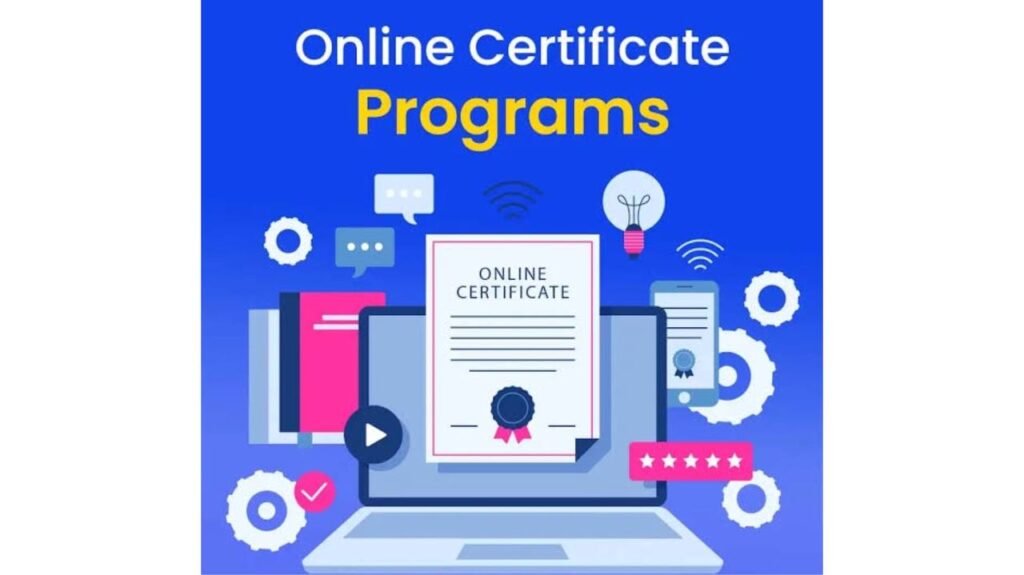
9. Executive Education Programs
Executive education programs are designed for senior executives and business leaders, providing advanced knowledge and skills in areas such as strategic management, global business, and innovation.
Key Benefits:
- Strategic Thinking: The programs focus on developing strategic thinking and decision-making skills, essential for senior leaders.
- Global Perspective: Many programs offer a global perspective on business, providing insights into international markets and cultures.
- Networking Opportunities: Executive education programs offer valuable networking opportunities with other senior executives and industry leaders.
- Customized Learning: Many programs offer customized learning experiences, allowing participants to focus on specific areas of interest.
Ideal for:
- Senior executives
- Business leaders
- Individuals seeking to advance their careers to the C-suite
Executive Education Programs: A Deeper Dive
Executive education programs cater to the unique needs of senior executives and business leaders, offering advanced knowledge and practical skills to navigate the complexities of the modern business world. Here’s a more detailed look at some of the key areas covered:
1. Strategic Management:
- Developing and Implementing Corporate Strategy: Learn frameworks for formulating and executing winning business strategies, including SWOT analysis, Porter’s Five Forces, and blue ocean strategy.
- Strategic Decision-Making: Develop critical thinking and analytical skills to make sound strategic decisions in uncertain and dynamic environments.
- Competitive Advantage: Understand how to identify and leverage competitive advantages, such as innovation, cost leadership, and differentiation.
- Industry Analysis: Gain insights into industry trends, competitive landscapes, and emerging opportunities.
2. Global Business:
- International Business Strategies: Explore strategies for entering and expanding into international markets, including globalization, localization, and regionalization.
- Cross-Cultural Management: Develop intercultural communication and leadership skills to effectively manage teams and stakeholders across different cultures.
- Global Economic and Political Trends: Understand the impact of global economic and political factors on business operations.
- International Trade and Investment: Learn about international trade agreements, investment regulations, and global supply chains.
3. Innovation and Entrepreneurship:
- Driving Innovation: Learn how to foster a culture of innovation within organizations, identify and develop new product and service ideas, and manage the innovation process.
- Entrepreneurial Thinking: Develop entrepreneurial mindset and skills, including identifying market opportunities, developing business plans, and securing funding.
- Disruptive Technologies: Understand the impact of disruptive technologies such as artificial intelligence, blockchain, and the Internet of Things on business models and strategies.
- Leading Innovation: Learn how to lead and inspire teams to embrace innovation and achieve breakthrough results.
4. Leadership and Management:
- Executive Leadership: Develop advanced leadership skills, including vision setting, strategic thinking, and influencing stakeholders.
- Change Management: Learn how to lead organizational change effectively, managing resistance and driving successful transformations.
- Team Leadership: Develop skills to build high-performing teams, foster collaboration, and motivate team members.
- Coaching and Mentoring: Learn how to coach and mentor team members, developing their skills and potential.
5. Finance and Accounting:
- Financial Statement Analysis: Learn how to analyze financial statements, understand key financial metrics, and assess the financial health of a company.
- Corporate Finance: Gain insights into corporate finance topics such as mergers and acquisitions, capital budgeting, and risk management.
- Financial Modeling: Develop skills in building and analyzing financial models to support strategic decision-making.
- Valuation Techniques: Learn different valuation methods, such as discounted cash flow analysis and comparable company analysis.
6. Marketing and Sales:
- Digital Marketing Strategy: Develop strategies for leveraging digital channels to reach target audiences, build brand awareness, and drive customer engagement.
- Customer Relationship Management (CRM): Learn how to build and maintain strong customer relationships, enhance customer satisfaction, and drive customer loyalty.
- Sales Leadership: Develop skills to lead and motivate sales teams, set sales targets, and achieve sales goals.
- Brand Management: Understand how to build and maintain a strong brand identity, manage brand reputation, and differentiate your brand from competitors.
7. Operations Management:
- Supply Chain Management: Learn how to optimize supply chains, improve efficiency, and enhance customer service.
- Lean Six Sigma: Develop skills in process improvement methodologies, such as Lean and Six Sigma, to enhance operational efficiency and reduce waste.
- Project Management: Learn effective project management principles and techniques to manage complex projects on time and within budget.
- Quality Management: Understand quality management principles and techniques to ensure product and service quality and customer satisfaction.
8. Technology and Digital Transformation:
- Digital Transformation: Understand the impact of digital technologies on business models, operations, and customer experiences.
- Data Analytics and Business Intelligence: Learn how to leverage data analytics to gain insights into customer behavior, market trends, and business performance.
- Artificial Intelligence and Machine Learning: Explore the potential of AI and machine learning to transform business processes and create new opportunities.
- Cybersecurity: Understand cybersecurity risks and develop strategies to protect organizational data and systems.
9. Sustainability and Corporate Social Responsibility:
- Sustainability Strategies: Develop strategies for integrating sustainability principles into business operations, reducing environmental impact, and enhancing social responsibility.
- Corporate Social Responsibility (CSR): Understand the importance of CSR initiatives and how to develop and implement effective CSR programs.
- Environmental, Social, and Governance (ESG): Learn about ESG factors and their impact on business performance and investment decisions.
- Sustainable Development Goals (SDGs): Understand the SDGs and how businesses can contribute to achieving these global goals.
10. Personal and Professional Development:
- Executive Presence: Develop strong executive presence, including communication, presentation, and interpersonal skills.
- Negotiation and Influence: Develop effective negotiation and influence skills to achieve desired outcomes in business dealings.
- Personal Mastery: Develop self-awareness, emotional intelligence, and resilience to navigate the challenges of leadership.
- Lifelong Learning: Develop a mindset of continuous learning and adaptation to thrive in a rapidly changing business environment.
These are just some of the key areas covered in executive education programs. The specific content and focus of each program will vary depending on the provider, target audience, and industry focus.
Remember: Executive education programs are designed to be highly interactive and engaging, often incorporating case studies, simulations, group discussions, and guest lectures from industry experts.

Leadership and Management Development Programs: A Deeper Dive
Leadership and management development programs are designed to equip individuals with the essential skills and knowledge to excel in leadership and management roles. These programs cover a wide range of topics, from foundational leadership principles to advanced strategic thinking and decision-making.
Key Areas Covered in Leadership and Management Development Programs:
- Leadership Styles and Approaches:
- Transformational Leadership: Inspiring and motivating teams to achieve extraordinary results.
- Servant Leadership: Prioritizing the needs of team members and fostering a supportive environment.
- Situational Leadership: Adapting leadership styles to fit the specific needs and situations of team members.
- Authentic Leadership: Leading with integrity, self-awareness, and genuine values.
- Communication and Interpersonal Skills:
- Effective Communication: Developing strong verbal, written, and nonverbal communication skills.
- Active Listening: Developing the ability to actively listen and understand the perspectives of others.
- Conflict Resolution: Learning effective strategies for resolving conflicts constructively.
- Negotiation and Influence: Developing negotiation and influence skills to achieve desired outcomes.
- Team Building and Collaboration:
- Building High-Performing Teams: Creating and fostering a positive and productive team environment.
- Delegation and Empowerment: Effectively delegating tasks and empowering team members.
- Teamwork and Collaboration: Fostering effective teamwork and collaboration among team members.
- Motivation and Engagement: Motivating and engaging team members to achieve their full potential.
- Strategic Thinking and Decision-Making:
- Strategic Planning: Developing and implementing effective strategic plans.
- Problem-Solving and Decision-Making: Developing critical thinking and problem-solving skills.
- Risk Management: Identifying and mitigating potential risks.
- Change Management: Leading and managing organizational change effectively.
- Emotional Intelligence:
- Self-Awareness: Developing self-awareness of strengths, weaknesses, emotions, and values.
- Self-Regulation: Managing emotions and impulses effectively.
- Social Awareness: Understanding and empathizing with the emotions and perspectives of others.
- Relationship Management: Building and maintaining strong relationships with others.
- Personal Development:
- Personal Growth and Development: Developing self-awareness, self-reflection, and personal growth.
- Building Resilience: Developing resilience to overcome challenges and setbacks.
- Developing a Growth Mindset: Cultivating a growth mindset that embraces learning and continuous improvement.
Program Formats:
Leadership and management development programs are offered in a variety of formats, including:
- Workshops and Seminars: Short-term, intensive programs designed to develop specific leadership skills.
- Executive Education Programs: In-depth programs designed for senior executives and business leaders.
- Coaching and Mentoring: One-on-one coaching and mentorship programs to provide personalized guidance and support.
- Online Courses and Certifications: Flexible online learning options for busy professionals.
Benefits of Participating in Leadership and Management Development Programs:
- Improved Leadership Skills: Develop essential leadership qualities such as communication, influence, and decision-making.
- Enhanced Team Performance: Effectively lead and motivate teams to achieve high performance.
- Career Advancement: Advance your career by demonstrating strong leadership skills and potential.
- Personal Growth: Develop self-awareness, self-reflection, and personal growth.
- Increased Confidence: Gain confidence in your ability to lead and manage effectively.
By investing in leadership and management development, you can enhance your effectiveness as a leader, improve your team’s performance, and achieve your professional goals.
Remember: The specific content and format of leadership and management development programs can vary depending on the provider and the target audience. It’s essential to choose a program that aligns with your specific career goals and learning needs.
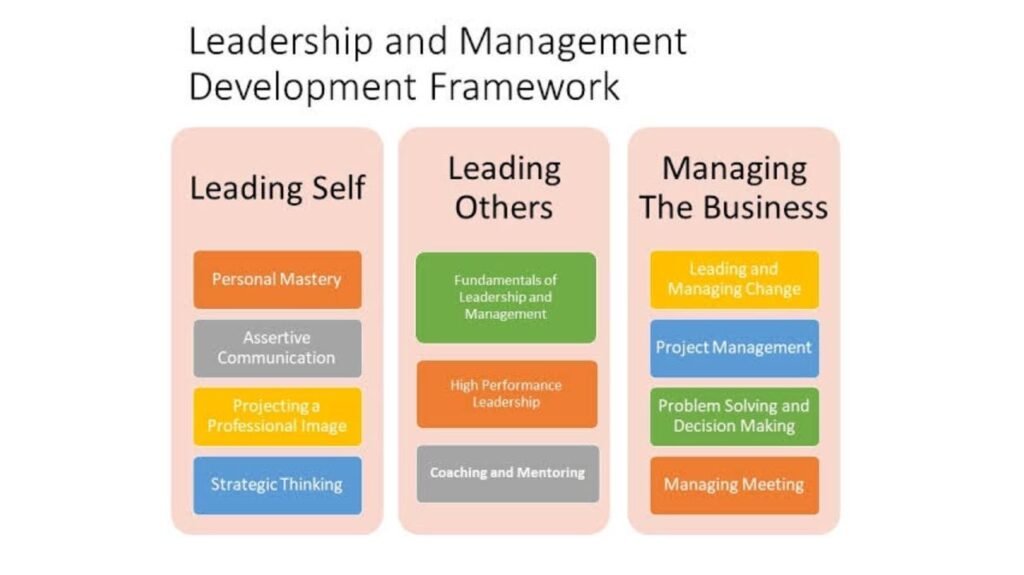
7. Cybersecurity Certification
In today’s digital world, cybersecurity is of paramount importance. This certification equips you with the knowledge and skills to protect computer systems and networks from cyber threats, ensuring the security and integrity of sensitive data.
Key Benefits:
- High Demand: Cybersecurity professionals are in high demand due to the increasing prevalence of cyber threats.
- Critical Role: Cybersecurity professionals play a vital role in protecting organizations from data breaches and other cyberattacks.
- Continuous Learning: The field of cybersecurity is constantly evolving, requiring continuous learning and adaptation.
- Job Security: The demand for cybersecurity professionals is expected to continue to grow, ensuring job security for those with the necessary skills.
Ideal for:
- IT professionals
- Individuals interested in a career in cybersecurity
- Organizations looking to enhance their cybersecurity posture
Cybersecurity Certifications: A Deeper Dive
Cybersecurity certifications are highly sought-after credentials that demonstrate your expertise in protecting computer systems and networks from cyber threats. Here are some of the most popular and in-demand certifications:
1. CompTIA Security+
- Focus: Entry-level cybersecurity knowledge and skills.
- Key Topics: Network security fundamentals, cryptography, access control, risk management, and incident response.
- Ideal For: Individuals starting their cybersecurity careers or those seeking a foundational understanding of cybersecurity concepts.
2. Certified Information Systems Security Professional (CISSP)
- Focus: High-level information security knowledge and experience.
- Key Topics: Security and risk management, asset security, security architecture and engineering, communication and network security, identity and access management, security assessment and testing, security operations, software development security.
- Ideal For: Experienced cybersecurity professionals aspiring for senior roles (e.g., CISO, Security Architect).
3. Certified Ethical Hacker (CEH)
- Focus: Ethical hacking techniques and methodologies.
- Key Topics: Footprinting and reconnaissance, scanning and enumeration, system hacking, network hacking, web hacking, wireless hacking, social engineering, mobile hacking, cloud computing, cryptography.
- Ideal For: Individuals interested in penetration testing and vulnerability assessment.
4. Certified Information Systems Auditor (CISA)
- Focus: Auditing, control, and security of information systems.
- Key Topics: The process of conducting independent audits, control assessments, and security examinations of information systems and related technology.
- Ideal For: Individuals interested in IT auditing, risk management, and compliance.
5. Certified Information Security Manager (CISM)
- Focus: Developing, implementing, and managing an organization’s information security program.
- Key Topics: Information security governance, risk management, information security service delivery.
- Ideal For: Senior-level professionals responsible for the overall management and oversight of an organization program.
6. Certified Cloud Security Professional (CCSP)
- Focus: Cloud security architecture, design, operations, and governance.
- Key Topics: Cloud security concepts and principles, architecture and design, cloud data security, identity and access management, security assessment and monitoring, incident response and compliance, and legal and regulatory considerations.
- Ideal For: Cloud security architects, engineers, and managers.
7. Certified in Risk and Information Systems Control (CRISC)
- Focus: Identifying, assessing, and mitigating risks across an enterprise.
- Key Topics: IT risk and control frameworks, risk identification, risk assessment, risk response, and risk monitoring.
- Ideal For: Risk managers, auditors, and other professionals involved in enterprise risk management.
Key Considerations When Choosing a Certification
- Career Goals: Align the certification with your desired career path and responsibilities.
- Experience Level: Choose certifications that are appropriate for your current level of experience.
- Learning Style: Consider online, classroom, or blended learning options based on your preferences.
- Budget and Time Commitment: Factor in the cost of the course materials, exam fees, and the time required for study and preparation.
- Employer Recognition: Research which certifications are most highly valued by employers in your industry and region.
Popular Platforms for Online Cybersecurity Courses
- Coursera: Offers a wide range of cybersecurity courses from top universities and institutions.
- Udemy: Provides access to numerous cybersecurity courses taught by industry experts.
- Pluralsight: Specializes in technology training and offers a comprehensive library of cybersecurity courses.
- Cybrary: Focuses on cybersecurity education and training, offering hands-on labs and interactive learning experiences.
- Google Cloud Training: Provides cloud security training and certifications related to Google Cloud platforms.
- AWS Training: Offers cloud security training and certifications for professionals working with Amazon Web Services (AWS).
By carefully considering your career goals and exploring the different options available, you can choose the best cybersecurity certifications to advance your career and enhance your professional value.
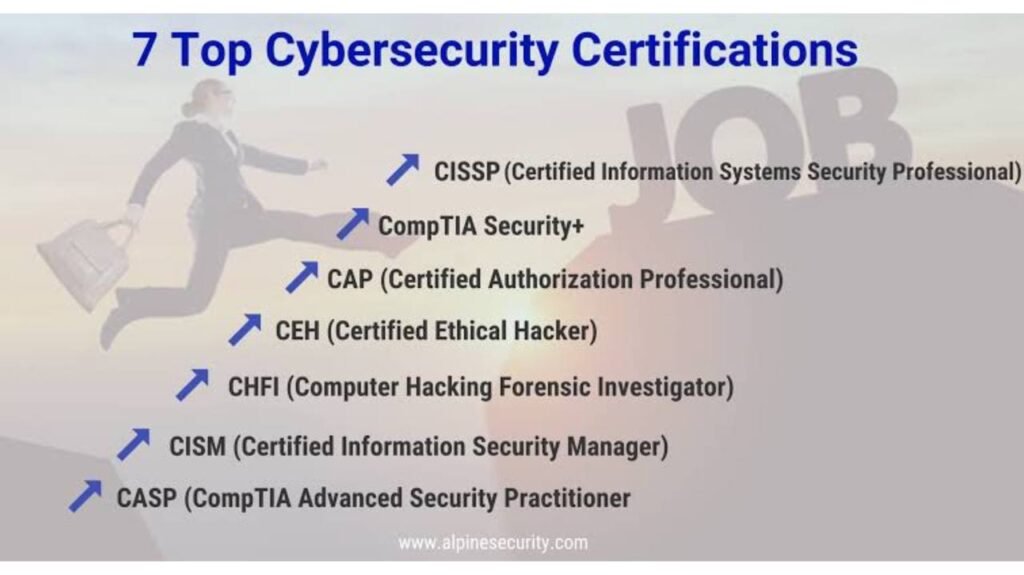
6. Six Sigma Certification
Six Sigma is a data-driven methodology for process improvement, focusing on reducing defects and enhancing efficiency. This certification equips you with the tools and techniques to identify and eliminate waste, improve quality, and enhance customer satisfaction.
Key Benefits:
- Improved Process Efficiency: Six Sigma principles help you streamline processes, reduce errors, and improve overall efficiency.
- Enhanced Quality: The certification focuses on improving product and service quality, leading to increased customer satisfaction.
- Cost Savings: By identifying and eliminating waste, Six Sigma can lead to significant cost savings for organizations.
- Career Advancement: Six Sigma professionals are highly valued in industries that prioritize quality and efficiency.
Ideal for:
- Quality professionals
- Process improvement specialists
- Individuals interested in improving operational efficiency
Six Sigma Certification Courses: A Deeper Dive
Six Sigma certifications are professional credentials that validate your expertise in the Six Sigma methodology, a data-driven approach to improving business processes by reducing defects and variability. These 1 certifications are offered at various levels, each indicating a different level of knowledge and proficiency.
Key Six Sigma Certification Levels:
- Yellow Belt:
- Focus: Basic understanding of Six Sigma principles and tools.
- Curriculum: Introduction to Six Sigma concepts, DMAIC (Define, Measure, Analyze, Improve, Control) methodology, basic statistical tools, and team roles.
- Ideal for: Individuals who want a foundational understanding of Six Sigma and want to participate as team members in Six Sigma projects.
- Green Belt:
- Focus: Practical application of Six Sigma tools and techniques to lead and execute improvement projects.
- Curriculum: In-depth coverage of DMAIC phases, advanced statistical tools, process mapping, root cause analysis, and project management skills.
- Ideal for: Project managers, team leaders, and individuals who want to lead and manage Six Sigma projects.
- Black Belt:
- Focus: Advanced level of expertise in Six Sigma, including mentoring and coaching Green Belts.
- Curriculum: Comprehensive coverage of Six Sigma concepts, advanced statistical analysis, design of experiments (DOE), Lean principles, and change management.
- Ideal for: Six Sigma professionals who lead and mentor teams, drive organizational change, and develop and implement Six Sigma strategies.
- Master Black Belt:
- Focus: Highest level of Six Sigma expertise, responsible for developing and implementing Six Sigma programs across the organization.
- Curriculum: Advanced leadership, strategic planning, organizational change management, and the ability to coach and mentor Black Belts.
- Ideal for: Senior leaders, consultants, and Six Sigma experts who drive organizational transformation through Six Sigma.
Key Topics Covered in Six Sigma Courses:
- Six Sigma Principles: Understanding the core concepts of Six Sigma, including the DMAIC methodology, defect reduction, and process variation.
- DMAIC Methodology: Detailed exploration of each phase of the DMAIC cycle:
- Define: Defining the scope of the project, identifying critical-to-quality (CTQ) characteristics, and developing project charters.
- Measure: Collecting and analyzing data, identifying key process inputs and outputs, and developing measurement systems.
- Analyze: Identifying root causes of defects, using tools like Pareto charts, fishbone diagrams, and hypothesis testing.
- Improve: Developing and implementing solutions to eliminate root causes and improve process performance.
- Control: Monitoring and sustaining process improvements, developing control plans, and ensuring long-term benefits.
- Statistical Tools: Learning and applying statistical tools such as:
- Descriptive statistics: Mean, median, mode, standard deviation, histograms.
- Control charts: Monitoring process stability and identifying special causes of variation.
- Hypothesis testing: Determining the statistical significance of differences between groups.
- Regression analysis: Identifying relationships between variables.
- Design of experiments (DOE): Optimizing processes by systematically changing input variables.
- Lean Principles: Understanding and applying Lean principles such as waste elimination, value stream mapping, and continuous improvement.
- Project Management: Developing project plans, managing timelines and budgets, and effectively communicating project progress.
- Teamwork and Leadership: Developing effective teamwork, leadership, and communication skills to lead and motivate project teams.
- Change Management: Understanding and managing organizational change associated with Six Sigma projects.
Choosing the Right Six Sigma Certification Course:
When selecting a Six Sigma certification course, consider the following factors:
- Your career goals: Determine the level of expertise you want to achieve and the career opportunities you’re seeking.
- Your learning style: Choose a course format that aligns with your learning preferences, such as classroom training, online courses, or blended learning.
- Accreditation and reputation: Select a reputable training provider with accredited certifications.
- Instructor expertise: Choose a course with experienced and knowledgeable instructors.
- Cost and duration: Consider the cost and duration of the course, as well as any additional fees for certification exams.
By carefully selecting a Six Sigma certification course that aligns with your career goals and learning style, you can gain valuable skills and knowledge that can significantly enhance your career prospects and contribute to organizational success.
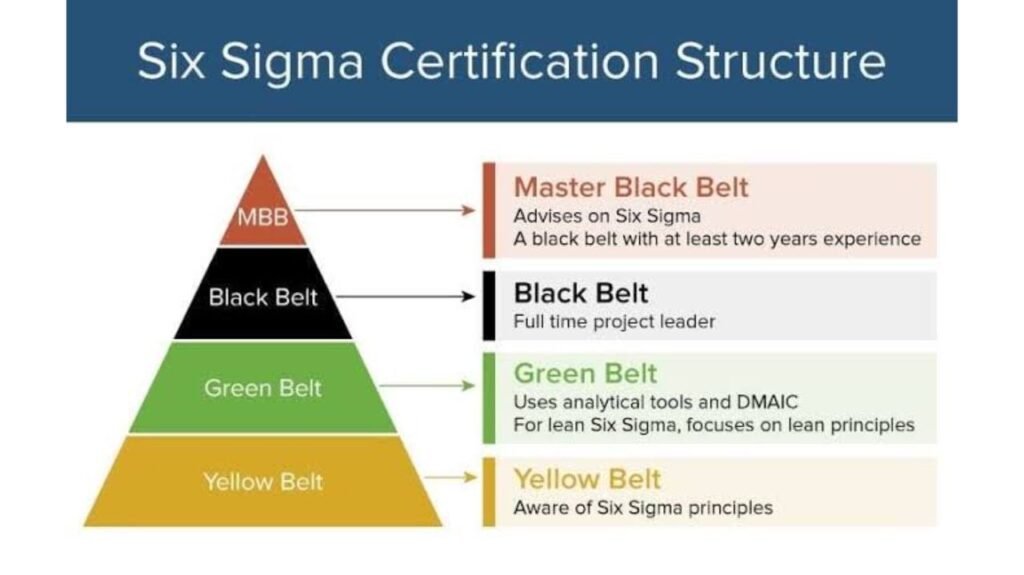
5. Financial Modeling and Valuation Certification
Financial modeling is a critical skill for financial professionals, investors, and entrepreneurs. This certification equips you with the skills to build and analyze financial models, perform valuations, and make informed investment decisions.
Key Benefits:
- Enhanced Financial Literacy: The course provides a deep understanding of financial concepts and principles.
- Improved Investment Decision-Making: The ability to build and analyze financial models enables you to make more informed investment decisions.
- Career Advancement: Financial modeling skills are highly valued in the financial industry, opening doors to lucrative career opportunities.
- Entrepreneurial Applications: The skills learned in this course can be valuable for entrepreneurs seeking funding for their businesses.
Ideal for:
Financial analysts
Investment bankers
Financial advisors
Financial Modeling and Valuation Certifications: A Deeper Dive
Financial modeling and valuation certifications equip individuals with the skills to build and analyze financial models, perform valuations, and make informed investment decisions. These certifications are highly valued in the financial industry, opening doors to lucrative career opportunities.
Key Areas Covered in Financial Modeling and Valuation Courses:
- Core Financial Concepts:
- Financial statements (income statement, balance sheet, cash flow statement)
- Accounting principles and concepts
- Financial ratios and analysis
- Time value of money
- Risk and return
- Financial Modeling Techniques:
- Three financial statements model
- Discounted cash flow (DCF) analysis
- Comparable company analysis
- Precedent transactions analysis
- Leveraged buyout (LBO) modeling
- Merger and acquisition (M&A) modeling
- Project finance modeling
- Valuation Methods:
- Discounted cash flow (DCF) valuation
- Relative valuation (comparables and multiples)
- Option pricing models
- Real options analysis
- Financial Modeling Tools:
- Microsoft Excel (advanced formulas, functions, data analysis tools)
- Financial modeling software (e.g., Capital IQ, Bloomberg)
- Investment Banking and Corporate Finance Applications:
- Investment banking deal execution (M&A, IPOs, debt offerings)
- Financial planning and analysis (FP&A)
- Equity research
- Portfolio management
- Credit analysis
Popular Financial Modeling and Valuation Certifications:
- Financial Modeling & Valuation Analyst (FMVA®) Certification (Corporate Finance Institute): This comprehensive program covers a wide range of topics, from core financial concepts to advanced modeling techniques. It emphasizes hands-on learning with real-world case studies and projects.
- Wall Street Prep Financial Modeling Certification: This certification focuses on investment banking and corporate finance applications, providing in-depth training on building complex financial models and performing valuations.
- Coursera Financial Modeling & Valuation Specialization: This online program offered by Coursera covers key concepts in financial modeling and valuation, including DCF analysis, comparable company analysis, and M&A modeling.
- University-Based Certifications: Several universities offer professional certifications in financial modeling and valuation, often through executive education programs. These programs provide in-depth knowledge and industry insights from experienced faculty and practitioners.
Benefits of Pursuing a Financial Modeling and Valuation Certification:
- Enhanced Financial Literacy: The certification provides a deep understanding of financial concepts and principles.
- Improved Investment Decision-Making: The ability to build and analyze financial models enables you to make more informed investment decisions.
- Career Advancement: Financial modeling skills are highly valued in the financial industry, opening doors to lucrative career opportunities.
- Entrepreneurial Applications: The skills learned in this course can be valuable for entrepreneurs seeking funding for their businesses.
Ideal Candidates for Financial Modeling and Valuation Certifications:
- Financial analysts
- Investment bankers
- Financial advisors
- Entrepreneurs
- Individuals interested in a career in finance
Choosing the Right Certification:
When selecting a financial modeling and valuation certification, consider your career goals, learning style, and budget. Research different programs, compare course content, and read reviews from previous participants to make an informed decision.
Remember: Continuous learning and professional development are essential in the dynamic field of finance. By pursuing a financial modeling and valuation certification, you can enhance your skills, advance your career, and achieve your professional goals.
Disclaimer: This information is for general knowledge and informational purposes only and does not constitute financial, investment, or professional advice.
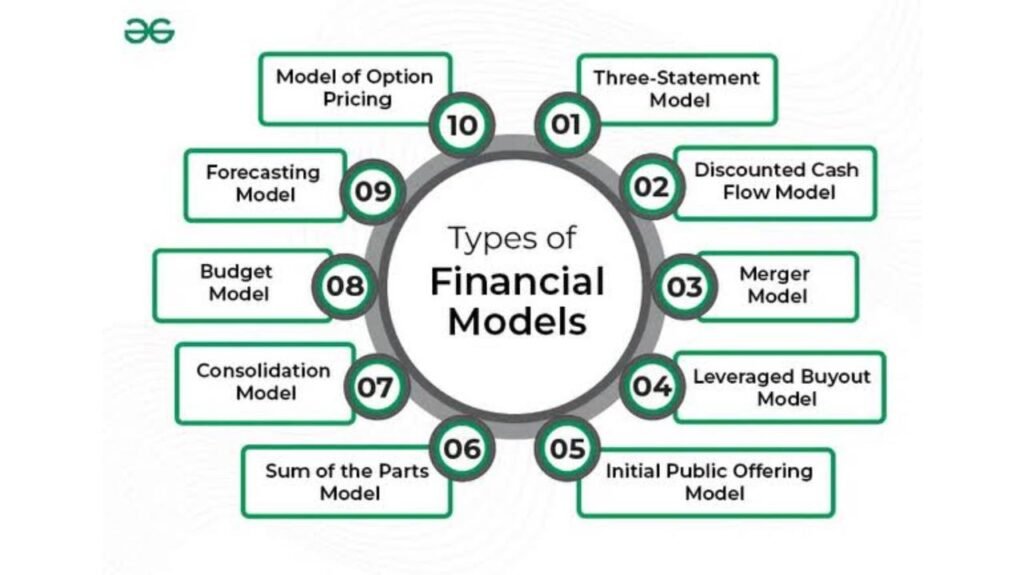
4. Data Science and Analytics Certification
Data has become the lifeblood of modern businesses, and the ability to analyze and interpret data is crucial for making informed decisions. A data science and analytics certification provides you with the skills to extract valuable insights from data, identify trends, and make data-driven predictions.
Key Benefits:
- High-Growth Field: Data science and analytics is a rapidly growing field with high demand for skilled professionals.
- Competitive Advantage: The ability to analyze data gives you a competitive edge in the job market and within your organization.
- Improved Decision-Making: Data-driven insights enable you to make more informed and strategic decisions, leading to better business outcomes.
- Automation of Tasks: Data analysis tools and techniques can automate repetitive tasks, freeing up your time for more strategic initiatives.
Ideal for:
- Data analysts
- Business analysts
- Data scientists
- Individuals interested in a career in data-driven decision-making
Data Science and Analytics Certifications: A Deeper Dive
Data science and analytics certifications are highly sought-after credentials that validate your expertise in handling data, extracting meaningful insights, and making data-driven decisions. Here’s a closer look at some popular options:
1. Google Data Analytics Professional Certificate
- Focus: This program emphasizes the practical skills needed to succeed as a data analyst in the real world.
- Key Topics:
- Data cleaning and preparation
- Data analysis and visualization
- Storytelling with data
- SQL and R programming
- Case studies and real-world projects
- Ideal For: Individuals with little to no prior experience in data analysis who are looking to build a strong foundation in the field.
2. IBM Data Analyst Professional Certificate
- Focus: This program provides a comprehensive understanding of data analysis concepts and tools.
- Key Topics:
- Data mining and warehousing
- Predictive modeling
- Data visualization with Tableau
- SQL and Python programming
- Business intelligence and reporting
- Ideal For: Professionals seeking to enhance their data analysis skills and advance their careers in various industries.
3. Microsoft Certified: Azure Data Scientist Associate
- Focus: This certification validates your ability to design and implement and maintain data science solutions on the Microsoft Azure platform.
- Key Topics:
- Data exploration and preparation
- Feature engineering and selection
- Model training and evaluation
- Deployment and monitoring of machine learning models
- Azure machine learning services
- Ideal For: Data scientists and machine learning engineers who are proficient in Python and want to specialize in Azure-based data science solutions.
4. SAS Base Programming Certification
- Focus: This certification demonstrates your proficiency in using the SAS programming language for data manipulation, analysis, and reporting.
- Key Topics:
- Data input and output
- Data manipulation techniques
- Statistical procedures
- Data visualization
- SAS programming fundamentals
- Ideal For: Professionals who work with large datasets and need to perform complex statistical analyses using the SAS platform.
5. Tableau Desktop Specialist Certification
- Focus: This certification validates your expertise in using Tableau Desktop for data visualization and analysis.
- Key Topics:
- Data connection and preparation
- Data visualization techniques
- Interactive dashboards and storytelling
- Tableau Desktop features and functionalities
- Ideal For: Data analysts, business analysts, and data scientists who want to enhance their data visualization skills and create impactful data-driven presentations.
Choosing the Right Certification
The best data science and analytics certification for you will depend on your career goals, prior experience, and learning preferences. Consider the following factors:
- Your career goals: What specific role do you want to pursue in data science or analytics?
- Your technical skills: What is your current level of proficiency in programming languages like Python, R, or SQL?
- Your learning style: Do you prefer self-paced online courses or instructor-led training?
- Your budget: What is your budget for certification programs and training materials?
By carefully evaluating your needs and exploring the different options available, you can choose the right certification to advance your career in the exciting field of data science and analytics.
Remember: Continuous learning is crucial in the ever-evolving field of data science. Consider pursuing additional certifications and staying updated on the latest trends and technologies to maintain a competitive edge.
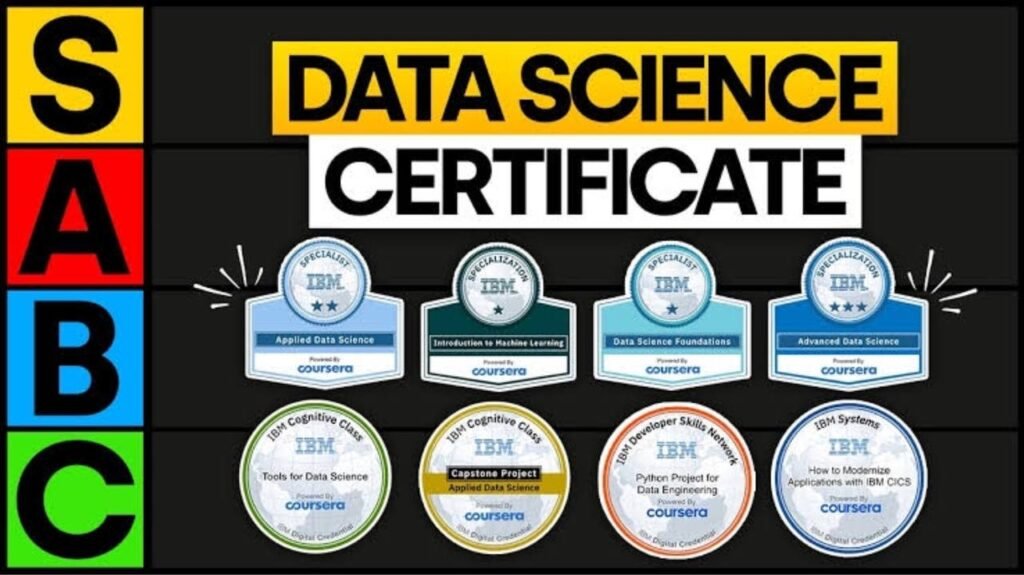
3. Digital Marketing Certification
In the digital age, a strong online presence is essential for businesses of all sizes. A digital marketing certification equips you with the skills and knowledge to effectively leverage online channels to reach your target audience, build brand awareness, and drive business growth.
Key Benefits:
- In-Demand Skills: Digital marketing skills are highly sought after by employers across various industries.
- Increased Marketing Effectiveness: The certification helps you develop effective digital marketing strategies, resulting in improved ROI and increased brand visibility.
- Adaptability to the Evolving Digital Landscape: The course covers the latest trends and technologies in digital marketing, ensuring you stay ahead of the curve.
- Entrepreneurial Opportunities: The skills learned in a digital marketing course can be valuable for entrepreneurs looking to start and grow their own online businesses.
Ideal for:
- Marketing professionals
- Entrepreneurs
- Individuals interested in a career in digital marketing
- Businesses looking to enhance their online presence
Digital Marketing Certifications: A Deeper Dive
Digital marketing certifications can significantly boost your career prospects and enhance your knowledge of online marketing strategies. Here’s a more detailed look into some popular options:
1. Google Digital Garage:
- Focus: Comprehensive introduction to digital marketing fundamentals.
- Key Topics: SEO, social media marketing, online advertising, content marketing, email marketing, analytics, and more.
- Benefits: Free, self-paced, and offers a globally recognized certificate. Ideal for beginners.
2. Google Ads Certification:
- Focus: Specialized training in Google Ads (formerly Google AdWords), covering search, display, video, and shopping campaigns.
- Benefits: Demonstrates expertise in Google Ads, which is a widely used advertising platform.
3. Meta (Facebook, Instagram) Blueprint Certifications:
- Focus: In-depth training on Facebook and Instagram advertising platforms, including campaign creation, targeting, and measurement.
- Benefits: Provides valuable skills for managing social media advertising campaigns effectively.
4. HubSpot Inbound Certification:
- Focus: Focuses on inbound marketing principles, including content marketing, SEO, social media, and email marketing.
- Benefits: Aligns with a popular inbound marketing methodology and provides a strong foundation in attracting and engaging customers.
5. Hootsuite Social Media Marketing Certification:
- Focus: Comprehensive training on social media marketing strategies, including platform-specific best practices, content planning, and community management.
- Benefits: Provides a well-rounded understanding of social media marketing and its role in digital marketing.
6. Coursera Digital Marketing Specialization:
- Focus: Offers a series of courses covering various aspects of digital marketing, from strategy and planning to execution and measurement.
- Benefits: Provides a structured learning path with a focus on practical skills and real-world applications.
7. SEMrush SEO Toolkit Certification:
- Focus: Advanced training in SEO techniques, including keyword research, on-page optimization, technical SEO, and link building.
- Benefits: Provides in-depth knowledge of the SEMrush platform, a popular SEO toolset.
8. Google Analytics Individual Qualification:
- Focus: Demonstrates expertise in Google Analytics, a powerful tool for website and marketing data analysis.
- Benefits: Essential for anyone who wants to track and analyze website traffic, user behavior, and marketing campaign performance.
Choosing the Right Certification:
- Define your goals: What are your career aspirations? What specific digital marketing skills do you want to develop?
- Consider your experience level: Are you a complete beginner, or do you have some prior experience?
- Research different programs: Compare course content, pricing, and certification benefits.
- Read reviews: See what other learners have to say about different certification programs.
Key Considerations:
- Cost: Certification programs vary in cost, from free options like Google Digital Garage to more expensive programs.
- Time commitment: Factor in the time required to complete the course and prepare for any exams.
- Hands-on experience: Look for programs that offer practical exercises and real-world projects to apply your learning.
- Continuous learning: The digital marketing landscape is constantly evolving, so continuous learning and skill development are essential.
By investing in the right digital marketing certifications, you can enhance your skills, advance your career, and stay ahead of the curve in this dynamic field.
Remember: This is not an exhaustive list, and many other excellent digital marketing certifications are available. Research thoroughly and choose the programs that best align with your individual needs and career goals.

2. Project Management Professional (PMP) Certification
In today’s fast-paced business environment, effective project management is crucial for achieving organizational goals. The PMP certification is globally recognized and highly regarded, demonstrating your expertise in project planning, execution, monitoring, and control.
Key Benefits:
- Increased Earning Potential: PMP certified professionals often command higher salaries and better career opportunities.
- Enhanced Project Success Rates: The certification equips you with the skills and knowledge to manage projects efficiently and effectively, increasing the likelihood of successful project outcomes.
- Global Recognition: The PMP certification is internationally recognized, expanding your career opportunities beyond geographical boundaries.
- Improved Communication and Leadership Skills: The certification emphasizes effective communication, teamwork, and leadership, essential skills for any project manager.
Ideal for:
- Project managers
- Team leaders
- Individuals involved in project planning, execution, and delivery
The Project Management Professional (PMP)® certification is a globally recognized credential awarded by the Project Management Institute (PMI). It signifies expertise in project management methodologies and best practices.
Here are some key details about PMP certification courses:
1. Eligibility Criteria:
- Secondary degree: High school diploma or global equivalent.
- Education:
- Bachelor’s degree or higher: Minimum 7,500 hours of leading and directing projects.
- Associate’s degree or higher: Minimum 10,000 hours of leading and directing projects.
- Project Management Experience: Minimum 36 months of unique non-overlapping professional project management experience.
- Project Management Education: 35 contact hours of project management education.
2. Course Content:
- PMBOK Guide: The core knowledge base for the PMP exam is the PMBOK® Guide (Project Management Body of Knowledge). This guide covers the five process groups (Initiating, Planning, Executing, Monitoring & Controlling, Closing) and ten knowledge areas:
- Project Integration Management
- Project Scope Management
- Project Time Management
- Project Cost Management
- Project Quality Management
- Project Resource Management
- Project Communications Management
- Project Risk Management
- Project Procurement Management
- Project Stakeholder Management
- Other Topics:
- Agile methodologies
- Predictive and adaptive approaches
- Leadership and team management
- Professional and social responsibility
- Ethical conduct
3. Course Formats:
- Instructor-led training: Classroom-based or virtual training sessions conducted by certified instructors.
- Self-study: Online courses, books, and other resources for independent learning.
- Boot camps: Intensive, short-duration courses designed for rapid exam preparation.
4. Exam Preparation:
- Study materials:
- PMBOK® Guide
- Exam prep guides and practice questions
- Online resources and simulations
- Practice exams: Mock exams to assess your knowledge and identify areas for improvement.
5. Exam:
- Computer-based test: 200 multiple-choice questions.
- Duration: 230 minutes.
- Passing score: 61%.
6. Benefits of PMP Certification:
- Career advancement: Increased earning potential and better job opportunities.
- Enhanced project success: Improved project outcomes through the application of best practices.
- Global recognition: Internationally recognized credential valued by employers worldwide.
- Improved skills: Development of valuable project management skills, including leadership, communication, and critical thinking.
7. Maintaining the Certification:
- Continuing Professional Development (PDU): Earn 60 Professional Development Units (PDUs) every three years to maintain your PMP certification.
Key Considerations:
- Choose a reputable training provider: Select a provider accredited by PMI or with a proven track record of success.
- Allocate sufficient study time: Dedicate adequate time for self-study and exam preparation.
- Practice consistently: Regularly practice with mock exams to improve your exam performance.
- Join a study group: Collaborate with other candidates to share knowledge and stay motivated.
By carefully preparing for the PMP exam and diligently applying project management principles, you can significantly enhance your career prospects and contribute to successful project outcomes.
Disclaimer: This information is for general guidance only and may not be entirely accurate or up-to-date. Please refer to the official PMI website (pmi.org) for the most current and accurate information regarding the PMP certification.
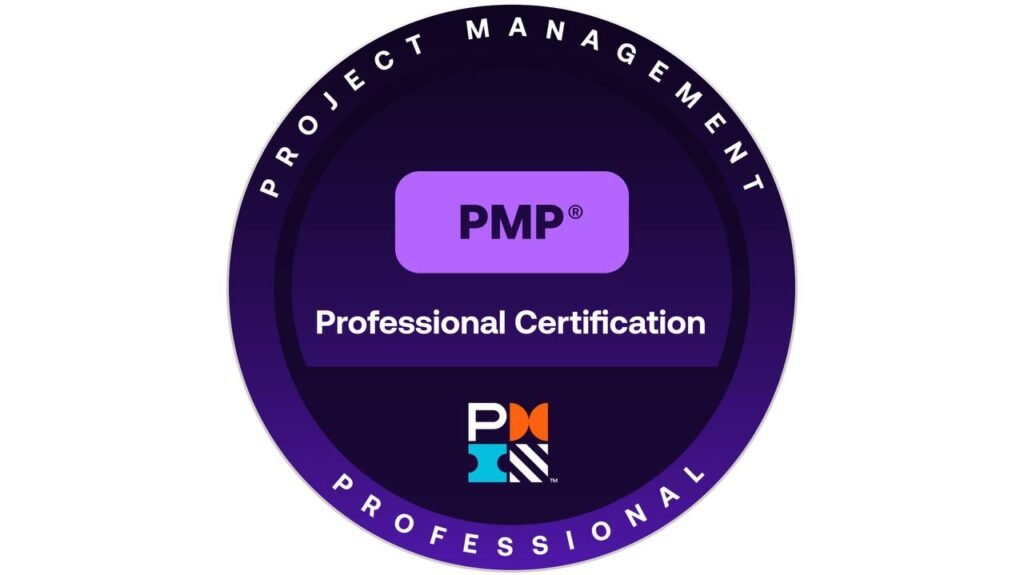
1. Master of Business Administration (MBA)
The MBA remains a gold standard in business education, providing a comprehensive understanding of core business functions like finance, marketing, operations, and human resources. It equips graduates with valuable leadership, strategic thinking, and decision-making skills, making it a sought-after degree for aspiring managers and executives.
Key Benefits:
- Enhanced Career Prospects: MBAs open doors to a wide range of high-paying and influential roles across various industries.
- Comprehensive Business Knowledge: The curriculum covers a broad spectrum of business disciplines, providing a holistic understanding of the business world.
- Strong Networking Opportunities: MBA programs offer valuable networking opportunities with fellow students, faculty, and industry professionals.
- Leadership Development: The program focuses on developing essential leadership qualities such as communication, teamwork, and strategic thinking.
Ideal for:
- Aspiring managers and executives
- Individuals seeking career advancement and higher salaries
- Entrepreneurs looking to gain a strong foundation in business principles
Master of Business Administration (MBA) Courses: A Deeper Dive
Core Curriculum:
The foundation of any MBA program lies in its core curriculum, which typically covers:
- Accounting: Financial accounting, managerial accounting, and cost accounting principles.
- Economics: Microeconomics and macroeconomics, focusing on market behavior, economic indicators, and global economic trends.
- Finance: Corporate finance, financial markets, investments, and risk management.
- Marketing: Marketing principles, consumer behavior, market research, advertising, and sales management.
- Operations Management: Production planning, inventory control, quality management, and supply chain management.
- Human Resource Management: Organizational behavior, human resource planning, recruitment, training, and employee relations.
- Statistics and Data Analysis: Statistical methods, data analysis techniques, and their application in business decision-making.
- Business Law: Contract law, corporate law, and legal aspects of business operations.
- Strategic Management: Strategic planning, competitive analysis, industry analysis, and business strategy formulation.
- Business Communication: Written and oral communication skills, including presentations, report writing, and negotiation.
Elective Courses:
Beyond the core curriculum, MBA programs offer a wide range of elective courses that allow students to specialize in specific areas of interest. Some popular elective areas include:
- Finance: Investment banking, portfolio management, financial modeling, and derivatives.
- Marketing: Digital marketing, international marketing, brand management, and market research.
- Operations: Supply chain management, logistics, operations research, and project management.
- Human Resources: Human resource development, organizational development, labor relations, and compensation and benefits.
- Entrepreneurship: New venture creation, business planning, and innovation.
- International Business: Global business strategy, international trade, and cross-cultural management.
- Healthcare Management: Healthcare finance, healthcare operations, and healthcare policy.
- Technology Management: Information systems, e-commerce, and technology innovation.
- Sustainability: Environmental sustainability, social responsibility, and sustainable business practices.
Specializations:
Many MBA programs offer specialized tracks or concentrations, allowing students to gain in-depth knowledge in a particular area. Some common specializations include:
- Finance: Investment banking, corporate finance, and financial risk management.
- Marketing: Digital marketing, brand management, and international marketing.
- Operations: Supply chain management, logistics, and project management.
- Human Resources: Human resource management, organizational development, and labor relations.
- Entrepreneurship: New venture creation, business planning, and innovation.
- International Business: Global business strategy, international trade, and cross-cultural management.
- Healthcare Management: Healthcare finance, healthcare operations, and healthcare policy.
- Technology Management: Information systems, e-commerce, and technology innovation.
- Sustainability: Environmental sustainability, social responsibility, and sustainable business practices.
Learning Methods:
MBA programs employ a variety of learning methods, including:
- Lectures: Traditional classroom lectures delivered by faculty members.
- Case Studies: Analyzing real-world business cases to develop critical thinking and problem-solving skills.
- Group Projects: Working in teams on projects that simulate real-world business challenges.
- Simulations: Experiential learning through simulations that replicate business situations.
- Guest Lectures: Inviting industry professionals to share their expertise and insights.
- Company Visits: Visiting companies to learn about their business operations and culture.
- Internships: Gaining practical experience through internships with companies in various industries.
Career Outcomes:
Graduates of MBA programs pursue a wide range of careers across various industries, including:
- Management Consulting: Providing strategic advice to businesses on a variety of issues.
- Investment Banking: Advising companies on mergers and acquisitions, and raising capital.
- Corporate Finance: Working in corporate finance departments, managing financial operations, and making investment decisions.
- Marketing and Sales: Developing and implementing marketing strategies, and managing sales teams.
- Operations Management: Managing production processes, supply chains, and logistics.
- Human Resource Management: Recruiting, training, and developing employees.
- Entrepreneurship: Starting and growing their own businesses.
- Non-profit Management: Managing non-profit organizations and social enterprises.
- Government and Public Service: Working in government agencies and public sector organizations.
Choosing an MBA Program:
When selecting an MBA program, consider factors such as:
- Program Rankings: Research the rankings of different MBA programs to assess their reputation and quality.
- Specializations: Choose a program that offers specializations in your areas of interest.
- Faculty Expertise: Look for programs with faculty members who have strong academic credentials and industry experience.
- Career Services: Evaluate the career services offered by the program, including career counseling, job placement assistance, and networking opportunities.
- Student Culture: Visit the campus and interact with current students to get a sense of the program’s culture and community.
- Cost and Financial Aid: Consider the cost of the program and the availability of financial aid options.
By carefully considering these factors, you can select an MBA program that aligns with your career goals and provides you with the knowledge, skills, and network to succeed in the business world.

Conclusion
Investing in your professional development is an investment in your future. By pursuing the right courses and certifications, you can enhance your skills, advance your career, and achieve your professional goals. Whether you’re looking to gain a comprehensive business education, specialize in a particular field, or develop specific skills, there is a course out there to help you succeed.
Remember: The best course for you will depend on your individual career goals, learning style, and budget.


